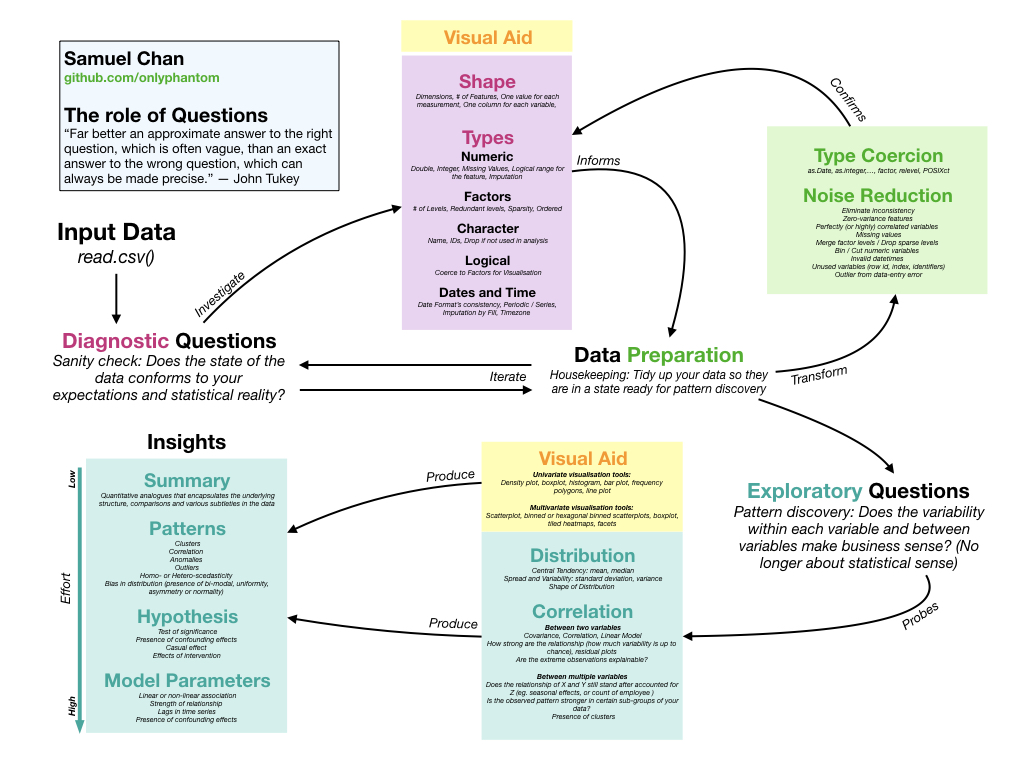Tactical Data Science
for
Beginning Practitioners
A more systemic, structural approach to data science tasks
Tactical Data Science for Beginning Practitioners
Course Summary
An alarming amount of data science resources online and offline focus on the syntax and semantics of R and Python programming languages.
While getting to grips with the language is highly important for any aspiring data scientists, understanding the nuances behind the work can offer a huge boost in productivity and clarity.
This workshop will instill a helpful mental model that can help you be more productive throughout your analysis, regardless of your programming language of choice. Participants are encouraged to download the free accompanying course book if they wish to practice on the topic.
Tactical data science for beginning practitioners zooms in on the mental models behind common data preparation tasks, and aim to equip beginning practitioners with some practical advice on wrangling data in a productive manner.
The workshop’s materials, assets and datasets are publicly available on GitHub. The workshop emphasizes practical techniques and problem-solving mentalities that:
- Favor a problem-solving style that is efficient and yields a short feedback cycle
- Isolate contexts by diagnosing your data before exploring it
- Diagnostic questions are sanity checks. They asks: “does the state of data conform to my expectations and statistical reality?”
- Exploratory questions are concerned with pattern discovery. They asks: “how can the information in the data be applied?”
- Incorporate prior knowkedge and domain knowledge in your data preparation tasks
- Preserve an unmodified copy of the data and understand that every language behave differently and yield different results even if they look semantically similar
The instructor will work through the materials in R and Python code, so a beginner-level familiarity in either language is assumed but not required.







